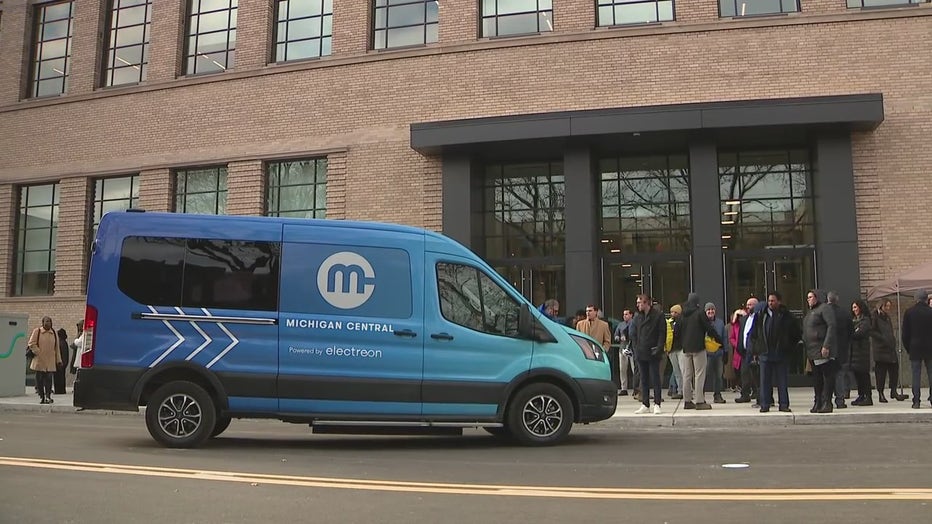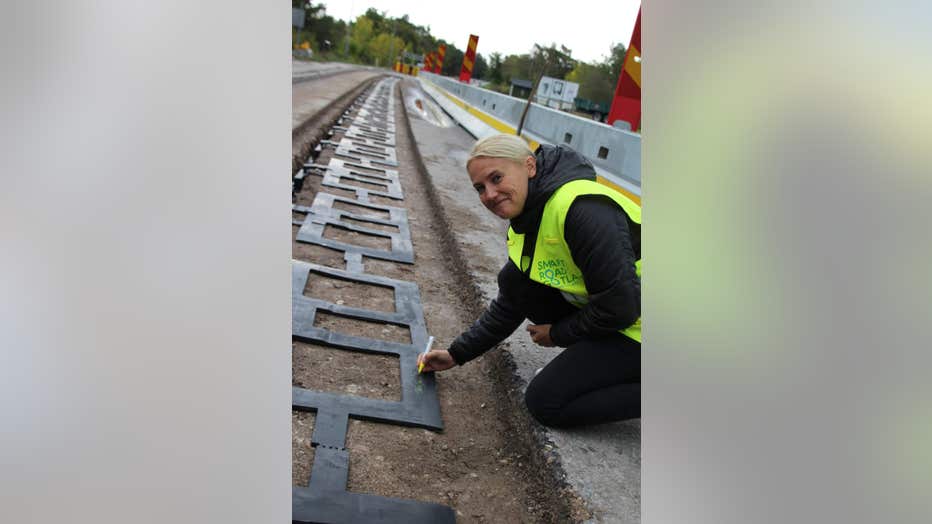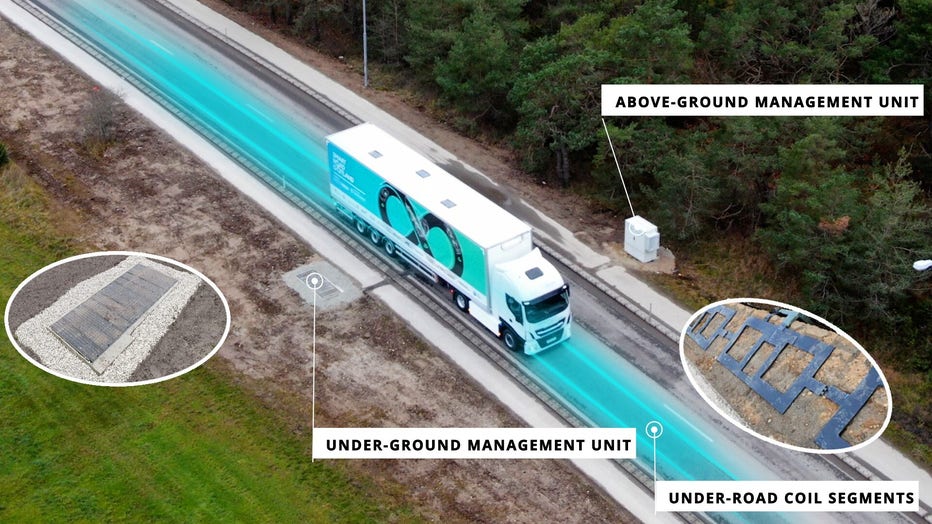First wireless charging road in U.S. unveiled in Detroit

Detroit now has the first wireless charging road in the US
While 14th Street is the first paved road that can charge a road, it's only a precursor to plans for laying coils along Michigan Avenue.
DETROIT (FOX 2) - The country's first wireless charging road that will energize electric vehicles without stopping has opened in Detroit.
The inductive-charging road spans a quarter mile on 14th Street, near Michigan Central and the city's mobility district. The officials overseeing the project called it the "future of roads."
Specialized coils were laid down beneath the asphalt of the street that can charge vehicles as they travel over it. It's the latest example of driving technology that officials had hoped would be created out of Michigan Central's mobility district.
"If it was easy, it would have already been done," said Deputy Mayor Todd Bettison.

A Michigan Central van outfitted with a receiver that can wirelessly receive electricity from the road it's driving on.
Bettison, speaking inside Michigan Central, said the city was in competition with the rest of the world to keep up with the growing electrification of vehicles.
"I want everyone to take time to savor this moment. This is the beginning of the future," he said.
The announcement came Wednesday morning before Electreon, the manufacturer of the new technology, demonstrated the charging happening in real time. The company's vice president of business development in the U.S. referenced the nation's first paved mile on Woodward when expressing the significance of what is the nation's first electrified road.
While 14th Street is the first paved road that can charge a road, it's only a precursor to plans for laying coils along Michigan Avenue.

Laying road segments in Sweden. Photo courtesy of Electreon.
"Marking this initial step of this project with the next one being Michigan Avenue, we can begin today to pave the path for a sustainable, electrical mobility future of tomorrow," he said.

A wireless charging road system. Photo courtesy of Electreon.
How wireless charging works
On 14th Street, a blue Michigan Central van hummed along. It looked like any other example of transit - but it's what isn't seen where the innovation is taking place.
There are two components necessary for wireless charging to work: one in the ground and one on the vehicle. Coils are laid down beneath the asphalt before being connected to a management unit, which Electreon describes as the "brain" which can supply power to the road.
Meanwhile, a receiver is attached to the bottom of the vehicle before being connected to its battery. When the vehicle drives over the coils, they'll power its battery unit directly.
The goal is to keep batteries in the vehicles small while expanding the amount of driving they can do without stopping. The infrastructure would be helpful not just for single-use electric vehicles, but also semi-trucks hauling materials and public transit moving around the city.
Planning for years
Plans for a pilot program to create wireless charging road have been in the works since 2021. Responding to concerns of range anxiety in electric vehicles, Gov. Gretchen Whitmer said her team had sought to expand ways of charging batteries in cars and trucks.
Plans for finalizing the road were announced in 2022, where the company Electreon was selected to oversee the project. The Michigan Office of Future Mobility and Electrification has also been involved in the work.
Electreon has already installed wireless charging roads in Europe and the Middle East. Detroit is the first city in the U.S. to have the same technology.


